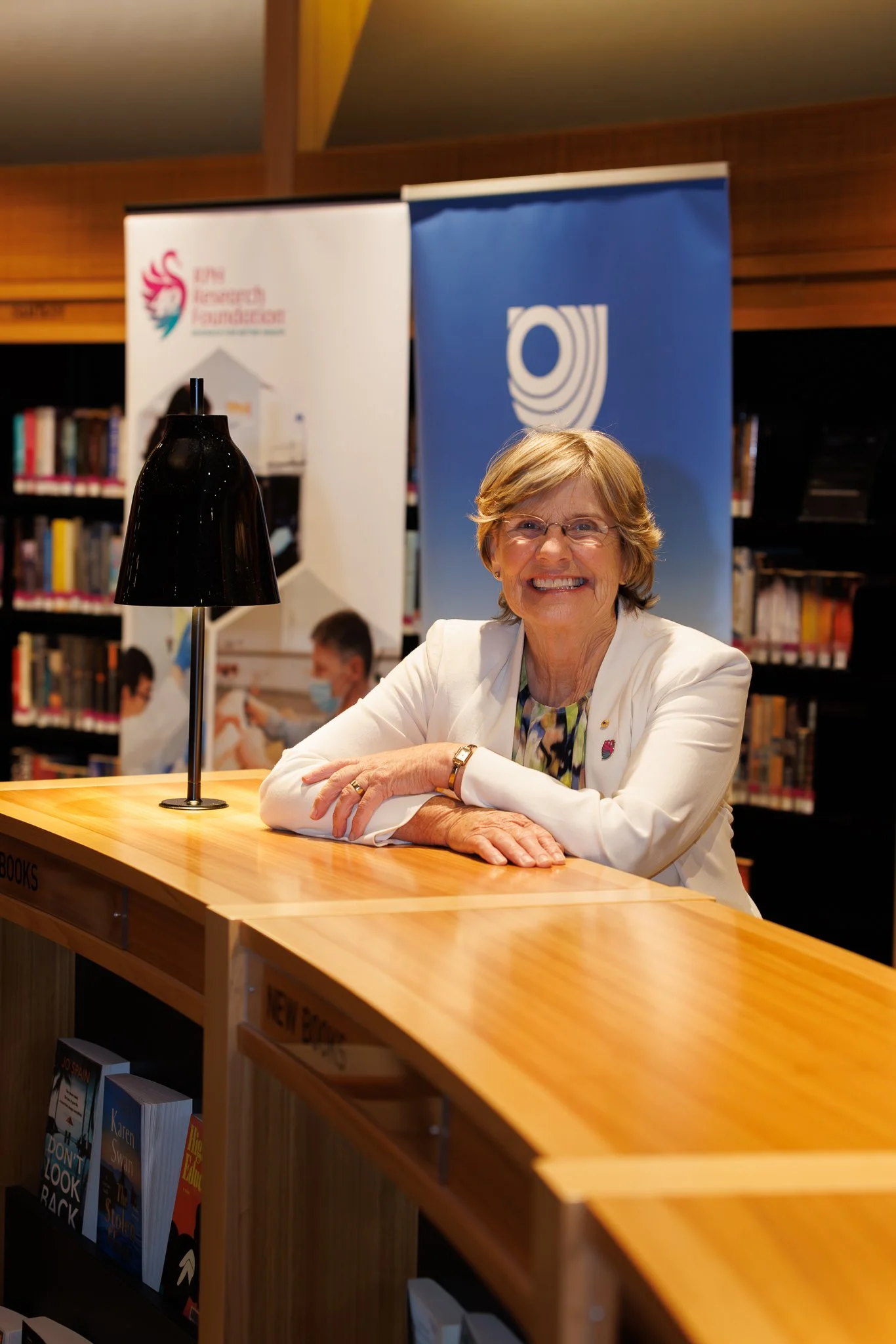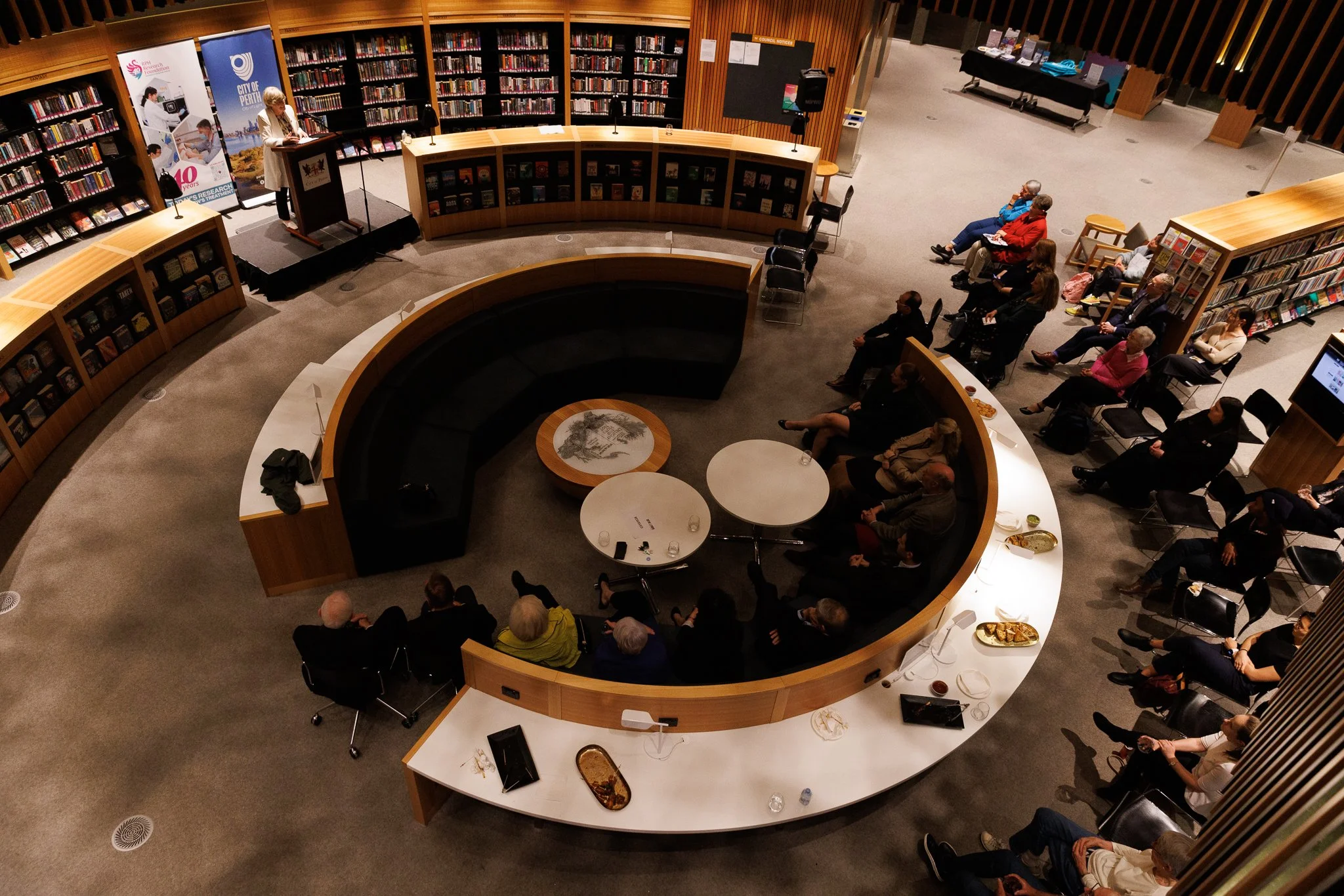Stumbling into leadership with Professor Lyn Beazley AO
Professor Lyn Beazley AO is a distinguished neuroscientist and 2015 West Australian of the Year. Despite serving as the first female Chief Scientist of WA she is adamant that she isn't a natural leader.
In May 2023, Professor Beazley shared news of her retirement at RPH Research Foundation’s “Celebrating 40 Years of Medical Research” event delivered in partnership with the City of Perth.
At this event, Professor Beazley shared stories from her career and what led her to become an ‘accidental leader’.
Few would believe that her illustrious career began with a hint of curiosity. Professor Beazley emphasised the importance of asking questions, recounting her experience as a young schoolgirl asking to peer through Sir Charles Darwin's microscope and the tour guide who unexpectedly granted her request.
As she looked at a carnivorous plant sample, that she now realises was likely from Western Australia, her curiosity was ignited. This moment set her on a career path that she was told would be impossible at 11 years old.
This simple question eventually saw Lyn become the first in her family to attend university. Lyn graduated from Oxford University with a Bachelor of Zoology. While at Oxford Lyn attended an evening lecture by Dr Mike Gaze from Edinburgh University on his work on brain recovery after injury and how to restore sight. This inspired her to complete her PhD at Edinburgh University studying the development of the nervous system in frogs, how the eye connects with the brain and how those broken connections can be regrown.
“This subject became known as neuroscience, but it didn’t even have a name back then,” Professor Beazley shared.
With a National Health and Medical Research Council (NHMRC) Fellowship Lyn eventually moved to Western Australia where she built an internationally renowned research team in Neuroscience at the University of Western Australia focusing on recovery from brain damage.
However, she insists she isn’t a ‘natural leader’ and that instead her leadership is inspired by being able to see when something needs doing and if nobody else is doing it stepping up and getting it done.
“Somebody said to me, “Oh you’re a leader” and I said, “Am I?!” Because I hadn’t really realised that.”
While in Australia, Professor Beazley’s research emphasised the role of appropriate training regimens for recovery from neurotrauma and helped to change clinical practice in the treatment of preterm babies.
She recalls when her daughter went into premature labour at 27 weeks with her second child. As Lyn sat holding her daughter’s hand she asked, “Mum do you think they’ve read all your papers?”
“The research I did actually helped one of my own grandchildren, which is amazing, and it has helped babies all around the world. That is one of my career highlights,” Professor Beazley recalls.
Reflecting on her appointment as the first woman to be Chief Scientist of WA, Professor Beazley revealed that she originally didn’t go for the position as she “only ticked 9.4 requirements out of 10”.
“Women in particular like to tick every box three times before they apply, however, if it is something you can learn and get help doing, you should take the opportunity,” she shared.
Professor Beazley served as Chief Scientist of Western Australia from 2006 to 2013. In this role, she advised the Western Australian Government on science, innovation and technology as well as acting as an ambassador for science locally, nationally, and internationally.
During her years as Chief Scientist Lyn established Dolphin Watch, spearheaded a program supplying microscopes to over 450 primary schools and helped negotiate to ensure Australia would co-host the Square Kilometre Array of radio telescopes, one the world's largest science endeavours.
Lyn says that a good leader knows when it is time to leave. “When everything is in good order it is best to step back and let someone else bring their ideas”. She applied this to her time as Chief Scientist and is doing it again for RPH Research Foundation.
This humble, passionate, and dedicated form of leadership has been the cornerstone of Professor Beazley’s tenure as Board Chair. Her passion for research has helped the Foundation fund critical research that has improved patient outcomes.
“Medical research has a great advantage in that curiosity can be turned into treatments and cures, making a better life,” shared Professor Beazley.
“I really fell into medical research, looking at recovery from brain damage through a very unusual route. I hadn't ever imagined that I would be doing medical research, but I'm very glad I did.”
“Let me say thank you, thank you, thank you to those who contribute to research. Because your funds, even a small amount can make a huge difference”.
Lyn’s wealth and breadth of knowledge have been an invaluable asset to the Foundation. Under her leadership, RPH Research Foundation set up the Career Advancement Fellowships which invests in early-stage researchers so they can establish a track record and be competitive in the next stage of their research.
“I'm particularly proud of setting up the early to mid-career Fellowships – it is the hardest stage of your career, and we don’t want to lose talented young people in the system”.
To further recognise Professor Beazley’s dedication and advocacy of early career researchers the Foundation has established the Professor Lyn Beazley AO Emerging Leader Award. The inaugural recipient will be awarded in October at the Foundation’s Research Symposium and Awards Day.
Lyn believes some people are leaders from day one, in others leadership is latent - however, the key is to ensure your heart, head and gut are aligned to know if you are going in the right direction.
Although Professor Beazley claims she stumbled into leadership- lead she has. Her contribution to medical research in Western Australia cannot be overstated.


